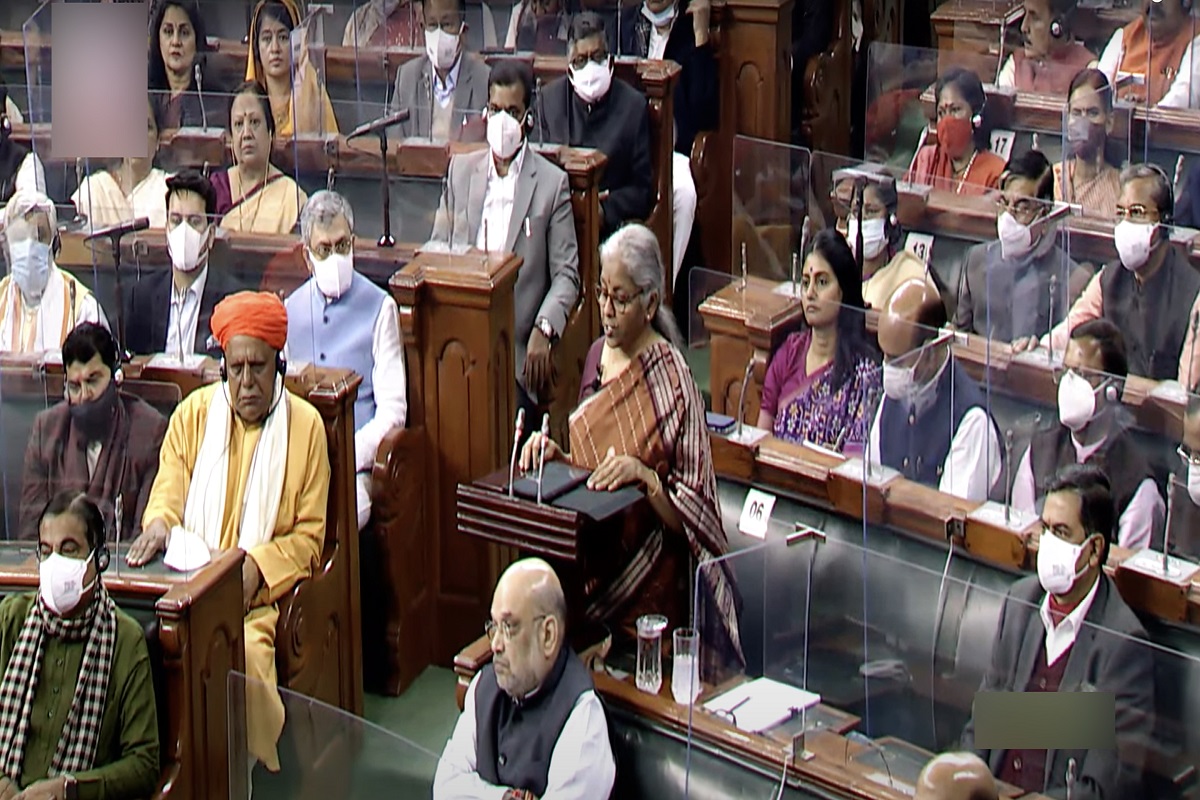The Union Budget for 2022-23 last week received Parliament’s approval when the Rajya Sabha adopted the Finance Bill and the Appropriation Bill for the next financial year.
After Lok Sabha, the Upper House gave another opportunity to Finance Minister Nirmala Sitharaman to rebut Opposition charges against Government projections and to give clarifications on issues like proposed capital expenditure and petroleum price-hike.
Advertisement
Clearing doubts about how the Rs 1 lakh crore loan to be extended to States for capital expenditure by the Central Government be treated as capital expenditure of the Centre, she said the money was to be spent on capital expenditure only. Ultimately, the Centre too undertook its capital expenditure in projects spread over States.
There would be a minimal burden on the States in the deal, as the Central loan would be interest-free and repayable over 50 years, she said. On the issue of rising petroleum prices, the Finance Minister said the Ukraine war had impacted the international situation and the Government was taking steps.
But a major issue behind the petrol and diesel price hike was the Rs 2 lakh crore oil bonds issued by the UPA government during its 10-year rule.
The bonds were issued to give relief to consumers then, but their redemption by the Modi Government imposed a heavy burden on its finances, which had to be met somehow. The Upper House was in silence when the Finance Minister made the shocking revelation about the massive oil bonds.
After clearing the financial business the previous week, the Lower House cleared more Bills last week, including the Chartered Accountants, the Cost and Works Accountants and the Company Secretaries (Amendment) Bill, and the Delhi Municipal Corporation (Amendment) Bill, 2022.
Introduction of the Criminal Procedure (Identification) Bill, 2022 was opposed by several parties in the Lower House, and they forced a vote on it.
The Government defeated the Opposition in the exercise, with 120 votes in favour and 58 against it. Minister of State for Home Ajay Kumar Mishra had sought to move the Bill on behalf of Home Affairs Amit Shah.
Prominent Opposition leaders including Adhir Ranjan Chowdhury and Manish Tewari (Congress), N K Premachandran (RSP), Sougata Ray (Trinamul Congress), and Ritesh Pandey (BSP) raised the issue of violation of fundamental rights in the Bill.
The Bill proposed that any person convicted, arrested or detained under any preventive detention law will be required to provide his “measurements” to a police officer or a prison official as that could help future investigations.
The definition of the measurements includes, besides fingerprints and footprints, photographs, palm prints, iris and retina scan, physical and biological samples and their analysis.
Tewari said the collection of the information could imply the use of force. The Minister of State for Home replied that the additional details were proposed due to advancements in technology and would enable faster investigations.
The Opposition raised doubts about the Chartered Accountants, the Cost and Works Accountants and the Company Secretaries (Amendment) Bill, 2021 also, saying the Government wanted greater control over autonomous bodies.
The Finance Minister said the law would facilitate the evolution of big accounting firms in India. Home Minister Amit Shah rejected the Opposition charge that the Centre wanted to encroach on States’ jurisdiction through a Bill like the Delhi Municipal Corporation (Amendment) Bill, 2022.
He said the Bill was brought because Delhi is a Union Territory. He said Delhi’s three municipal bodies were receiving stepmotherly treatment from the Delhi Government and their functioning would improve tremendously with their merger into an integrated unit.
The Rajya Sabha bid farewell to 72 retiring members last week. Every two years, one-third strength of the House retires. It was an emotional occasion, as well as, a happy one when Prime Minister Narendra Modi and Chairman M Venkaiah Naidu said the House would miss the members with long experience in public life, with many of them having been members of both Houses of Parliament.
Modi said the House was a big teacher as members from diverse regions spoke freely on different issues. The retiring members could do well by spreading the knowledge they had gained, wherever they go.









